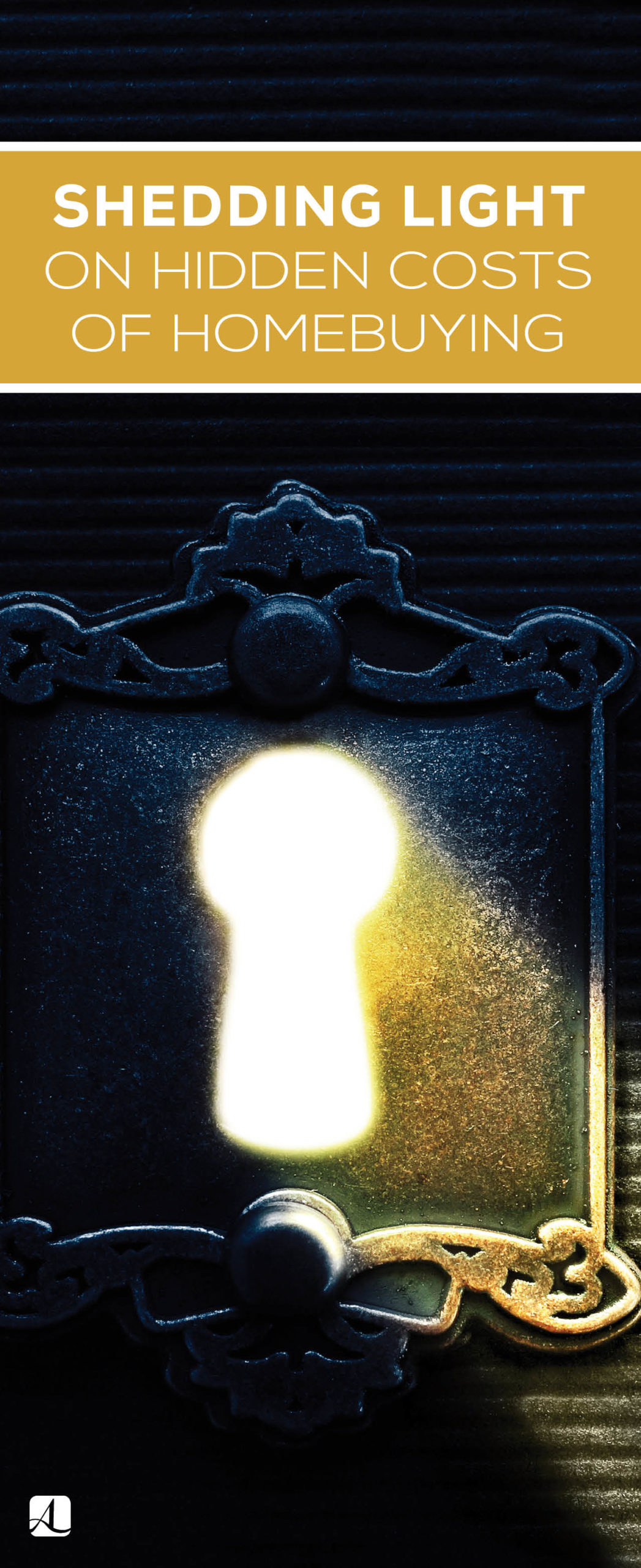Shedding Light on the Hidden Costs of Buying a Home
Buying a house is one of the most exciting, and costly, times in your life.
While many of the costs are obvious—the down payment, taxes, and utilities—more often than not, a homebuyer will run into various unforeseen costs throughout the process. However, deciphering these expenses beforehand will not only help keep your budget in check but also your nerves at bay—making a smoother process for all parties involved!
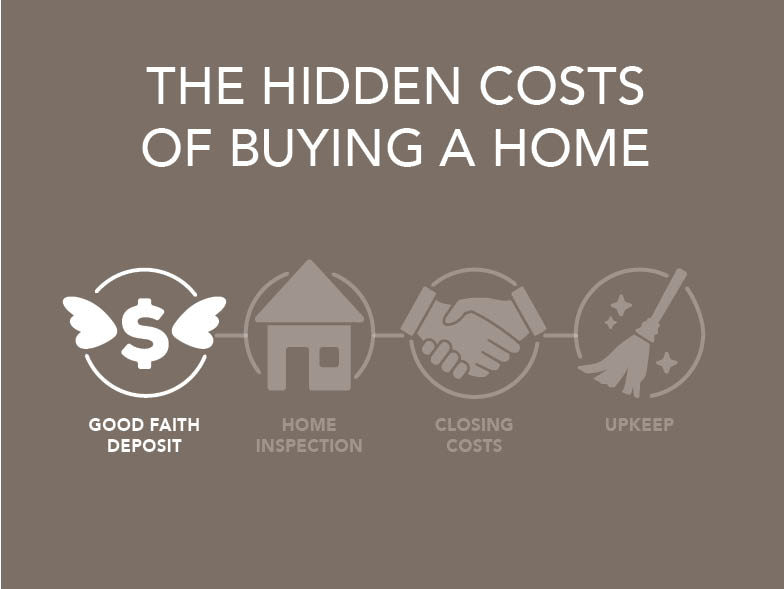
Good-faith deposit
Once you’ve negotiated a price, a good-faith deposit is required to prove your intent to buy the home. In simple terms, it’s a security deposit that’s held by the title company until you proceed with the settlement and then applied towards the down payment. Typically, the required deposit ranges between 1% to 3% of the purchase price. It’s important to understand that your check will be cashed right away, and the deposit may or may not be refunded in full.
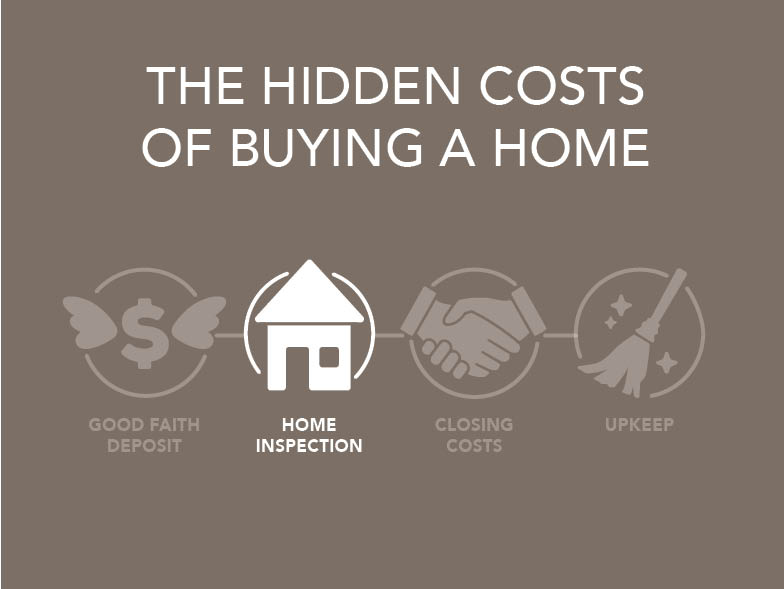
Home inspection
Home inspections are not mandatory, but often they are highly encouraged. This thorough examination will help determine the overall condition of the house—from structural to electrical. Depending upon square footage, an average home inspection will run you anywhere from $200–$500. While an inspector is an additional expense, hiring one can help you avoid pricey repairs and bad deals, saving you more money and time in the long run.
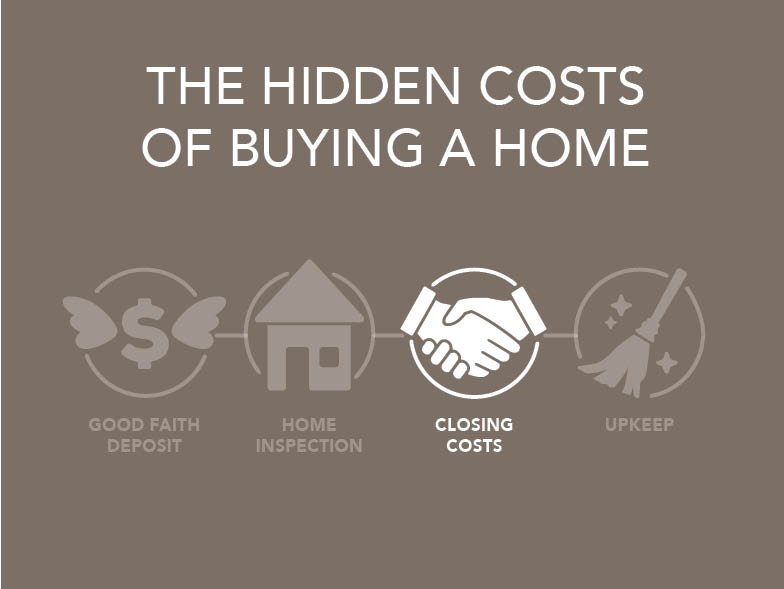
Closing costs
You have enough cash to cover the down payment, but did you factor in the closing costs as well? Closing costs include certain fees that are involved in both the home sale and the mortgage transaction. The fees can often include the appraisal and credit report, title insurance, property taxes, and homeowner’s insurance. Since the fees vary based on location, there isn’t a catchall percentage that you can expect. However, your mortgage broker can assist you with estimating the total cost needed for settlement.
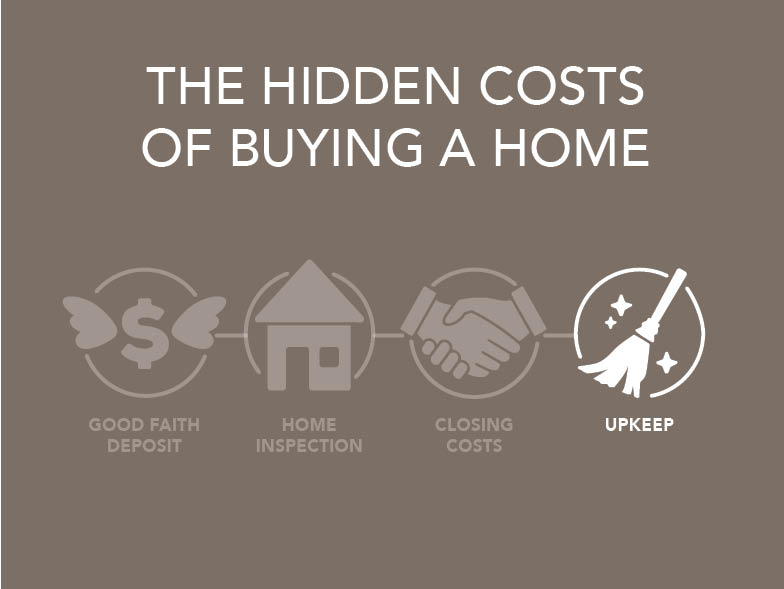
Upkeep
You’re officially a homeowner—woo-hoo! Although the majority of the up-front costs are behind you, it’s still best to allot money toward monthly upkeep and maintenance. Since you own your house outright, there isn’t a landlord to come and fix common but pesky occurrences—a leaky faucet, chipped paint, and a cracked window. All are relatively simple to correct, but they will nonetheless cut into your budget.
With homeownership comes a copious amounts of uncertainty, but overall rewarding in the end. Being in the loop about all expenses will make the process less daunting and more enjoyable!











